Nanjing Massacre Survivor Shi Xiuying Passed Away Aged 98
We are saddened to hear of the passing of Shi Xiuying, a survivor of the Nanjing Massacre, who died in the early hours of July 12 at the age of 98.
Grew up in hardship
Shi was born in October 1926. In 1937, at the age of 11, she lived with her parents and four of her five siblings (her second eldest sister, elder brother, younger brother, and younger sister) at No. 2, Niushou Lane, Qijiawan, Nanjing. Her father, Shi Changfu, was 47 years old at the time. Before the Japanese army invaded Nanjing, Shi’s father attempted to take the family to a refugee camp for shelter but was unsuccessful. He thenbuilt a shed for the family out of reed mats on a hillside near Shanghai Road. At that time, Shi’s eldest sister had already married, and her second eldest sister (15 years old) to live with their aunt at another refugee camp.
“My father is very affectionate towards his children. Before the Japanese army invaded Nanjing, he made a living by selling vegetables at the morning market. Every time he returned home, he would bring back a bag of candies to share with us. Life was relatively good. But after the Japanese army seized the city, he became increasingly worried about my second eldest sister and would check on her every day,” Shi had remembered. One day, however, a tragedy happened. “On the 14th day of the 11th lunar month (December 16)in 1937, my father went to my aunt’s house as usual but never returned. That evening, I went to my aunt’s house to look for him. My cousin told me he had been taken away by the Japanese soldiers. My younger cousin who was hiding in a lane near Shuiximen, saw my father bending down to tie his shoelaces.When a Japanese soldier turned around, hestabbed my father to death with a bayonet, right at the turning corner of Shuiximen,” Shi recounted, her eyes welling up with tears during a visit from the Memorial Hall staff.
In the same year that Shi's father was killed, her brothers, aged 19 and 8, were forced to find ways to support the family. “On December 24, 1937, my elder brother took my younger brother with him, carrying a basket to gather vegetables to sell and help make ends meet. They hadn't gone far when they encountered a Japanese military vehicle. The soldiers seized my elder brother, Shi Kunbao, and took him away. My younger brother, being too young, was spared and returned home in tears, saying, 'The Japanese soldiers took brother away.' It happened just eight days after our father was taken.” Shi had recounted.
This series of tragedies drove Shi's mother into a nervous breakdown. Shi described the harrowing memory of her mother frantically searching through dead bodies, hoping to find her elder brother. “My mother used a bamboo stick to sort through the corpses scattered everywhere – those floating in the water and lying on the streets – as if she’d lost her mind. She searched every day, crying and mourning without a moment’s rest,” Shi recalled.
To survive, Shi and her mother took on jobs like emptying chamber pots and doing laundry for others, earning only a meager income. “We made just two jiao (two tenths of a yuan) a month, and with that tiny amount, we would buy some dark, thick pancakes to bring home and distribute among my younger siblings, eking out a bare existence day by day.”
Shi’s uncle, her mother’s brother, heard about their plight and offer to take them to Shanghai to live with him. Shortly thereafter, Shi’s mother fell ill and passed away, overwhelmed by grief and the relentless challenges of their difficult life. Shi and her siblings took on any work they could find, struggling to survive. Shi often broke down in tears whenever she recalled those tragic years.
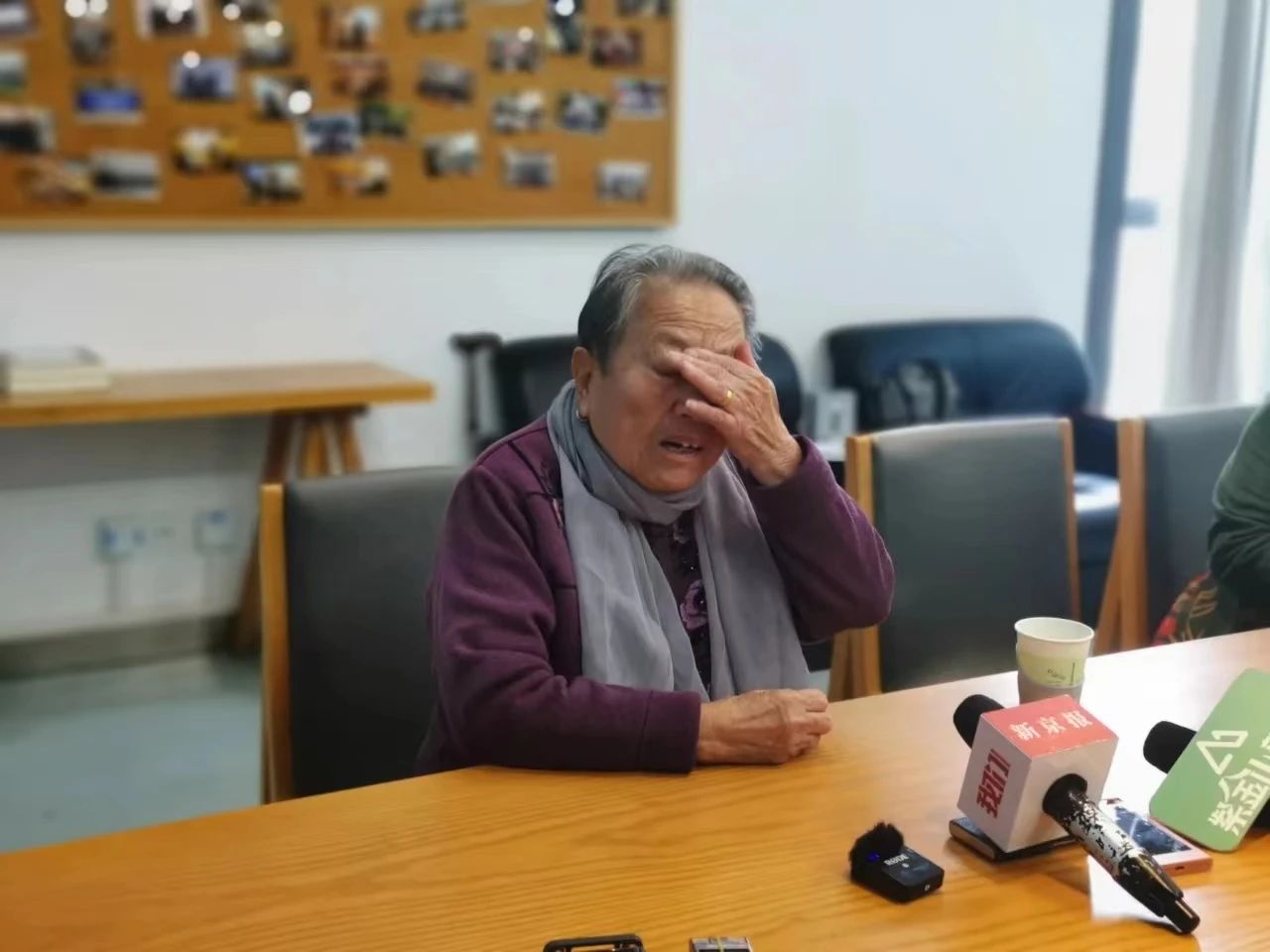
Lived a peaceful life only after the founding of New China
At the age of 21, Shi married and gave birth to three daughters. She often told her granddaughters, “I yearned for a miracle, and then the Communist Party of China (CPC) came. Only with the founding of New China could we live in peace and stability.”
Shi began her career in 1958 at a canteen on Sanpailou Street in Nanjing, where she frequently received commendations for her work. She continued working until she was 55 years old, five years beyond the usual retirement age for blue-collar women in China. After her husband passed away early due to a cerebral hemorrhage, Shi single-handedly raised their three daughters.
Participated in witness assemblies in Japan
In her later years, Shi participated in various events hosted by the Memorial Hall, including Qingming Festival family memorials, International Peace Day thematic events, and national memorial ceremonies for the Nanjing Massacre victims. She was dedicated to sharing her family's experiences during the Nanjing Massacre with younger generations.
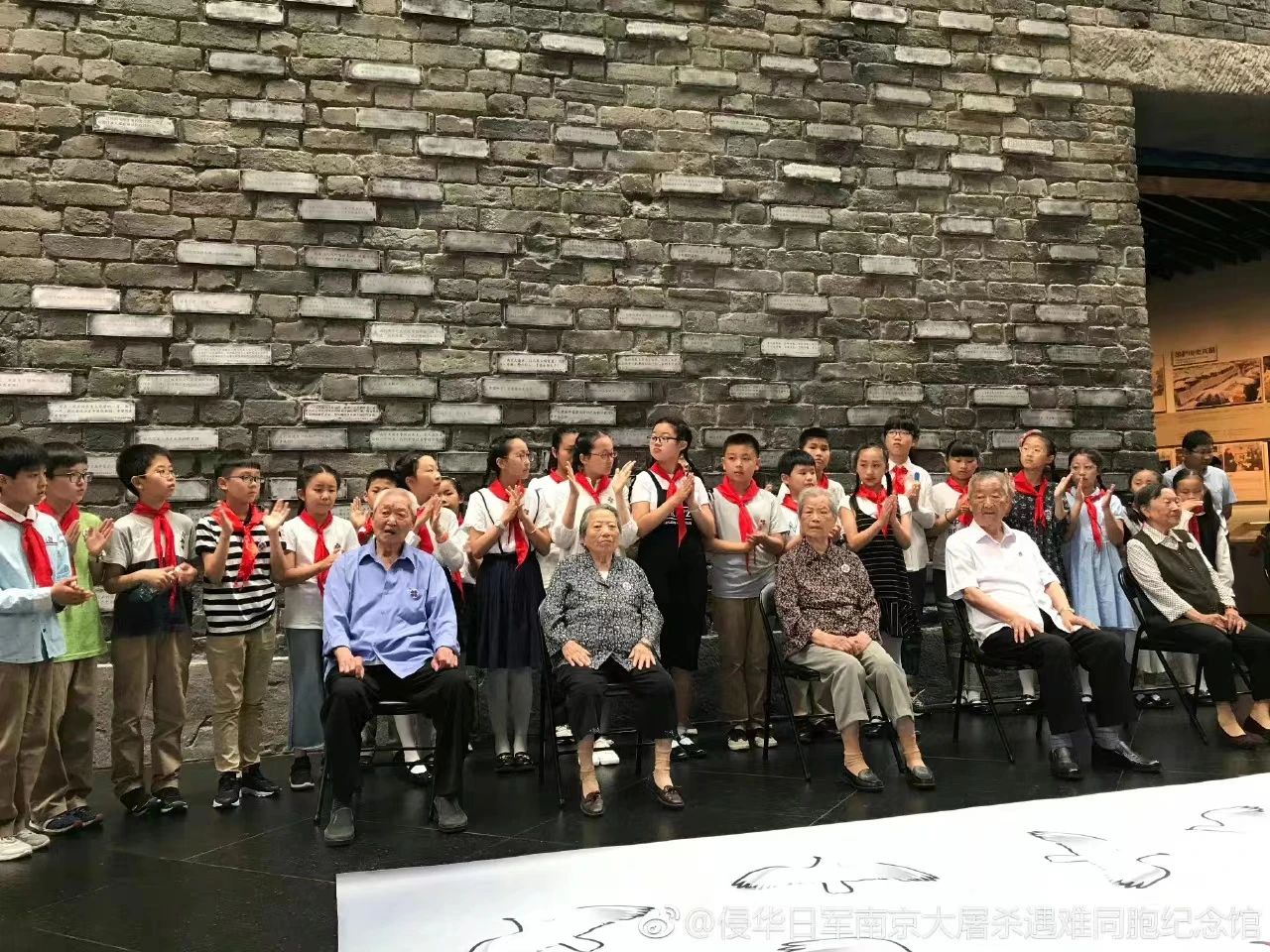
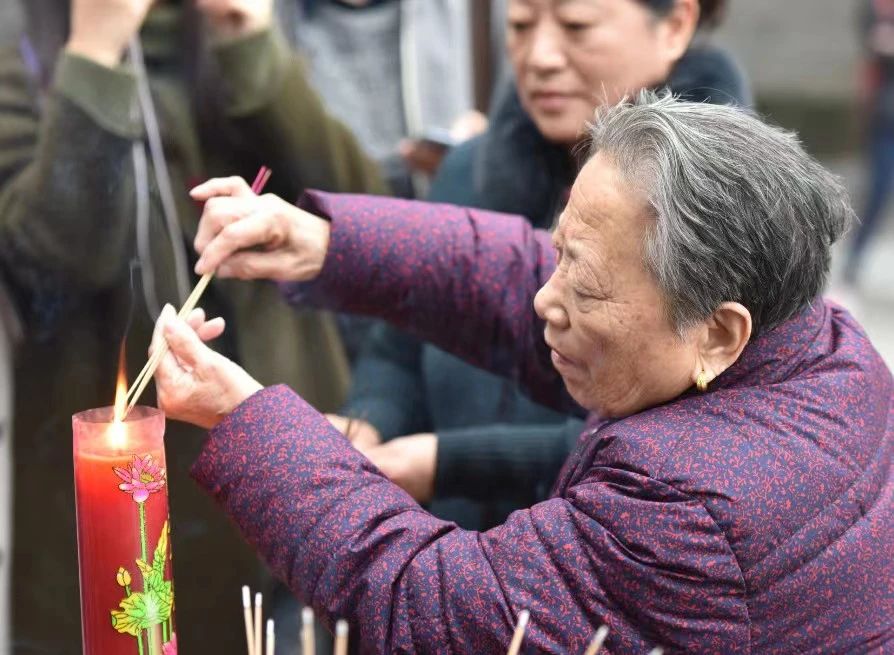
From December 9 to 14, 2015, Shi Xiuying traveled to Japan as a witness of the Nanjing Massacre, participating in witness assemblies in cities like Kumamoto, Nagasaki, and Fukuoka
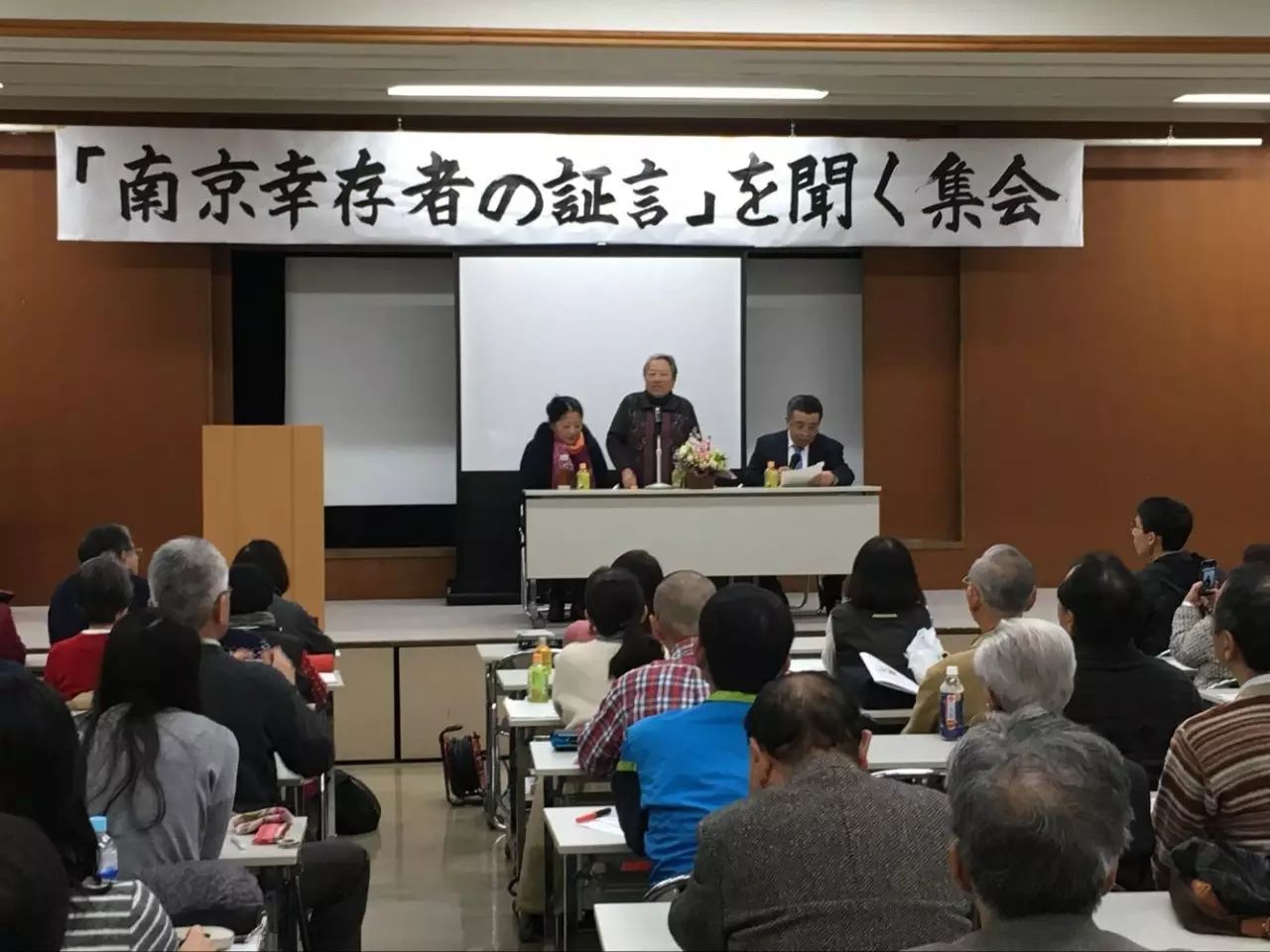
Shi Xiuying attended a witness assembly in Kumamoto, Japan
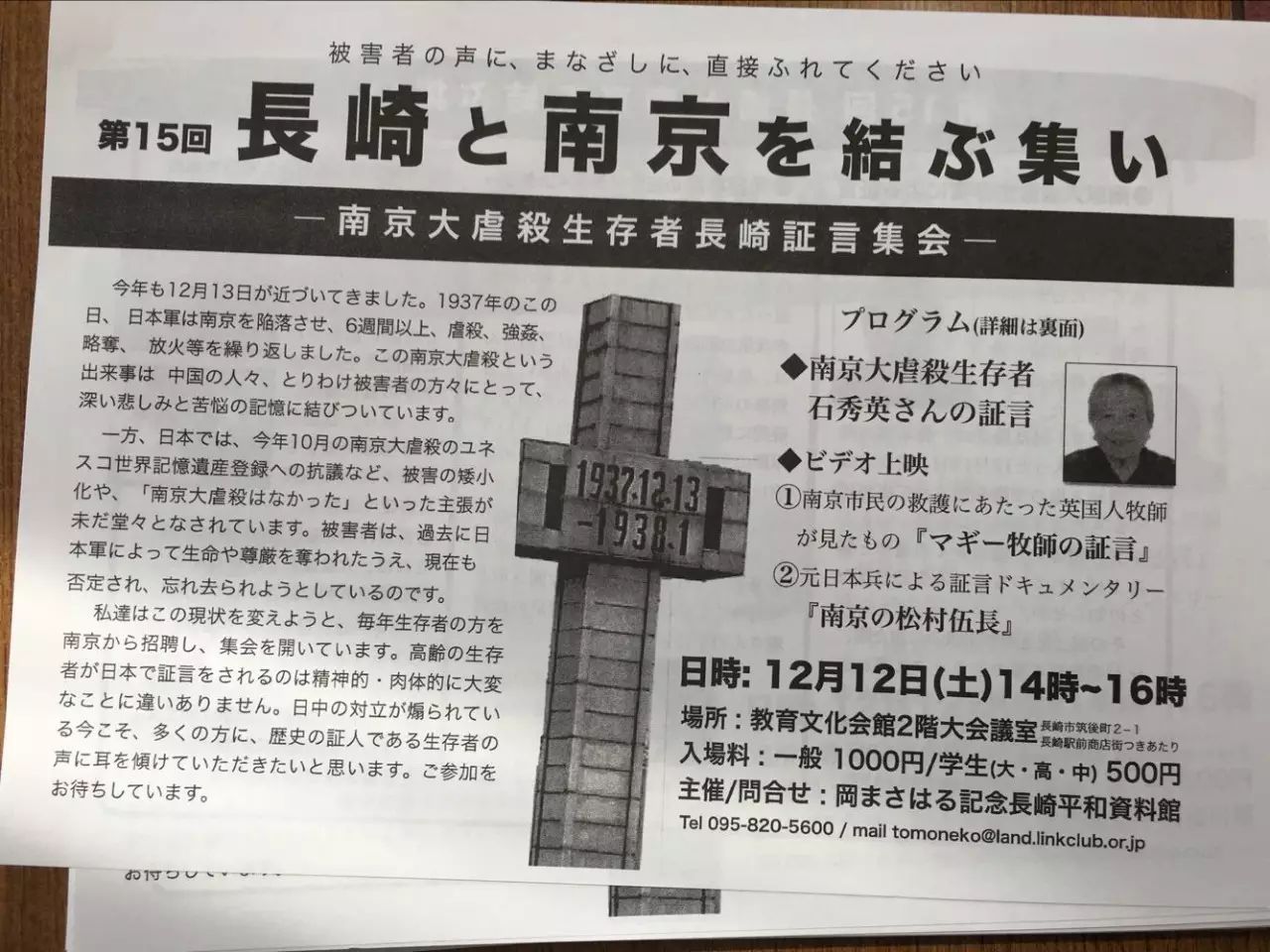
A flyer about a witness assembly in Nagasaki, Japan
Underwent amputation due to diabetic foot complications in her later years
After retiring, Shi lived with her eldest daughter's family. “Grandma managed the procurement of all household essentials. Even in her nineties, she took charge of preparing lavish meals for the entire family on festive occasions,” recalled her granddaughter, Leng Jie.
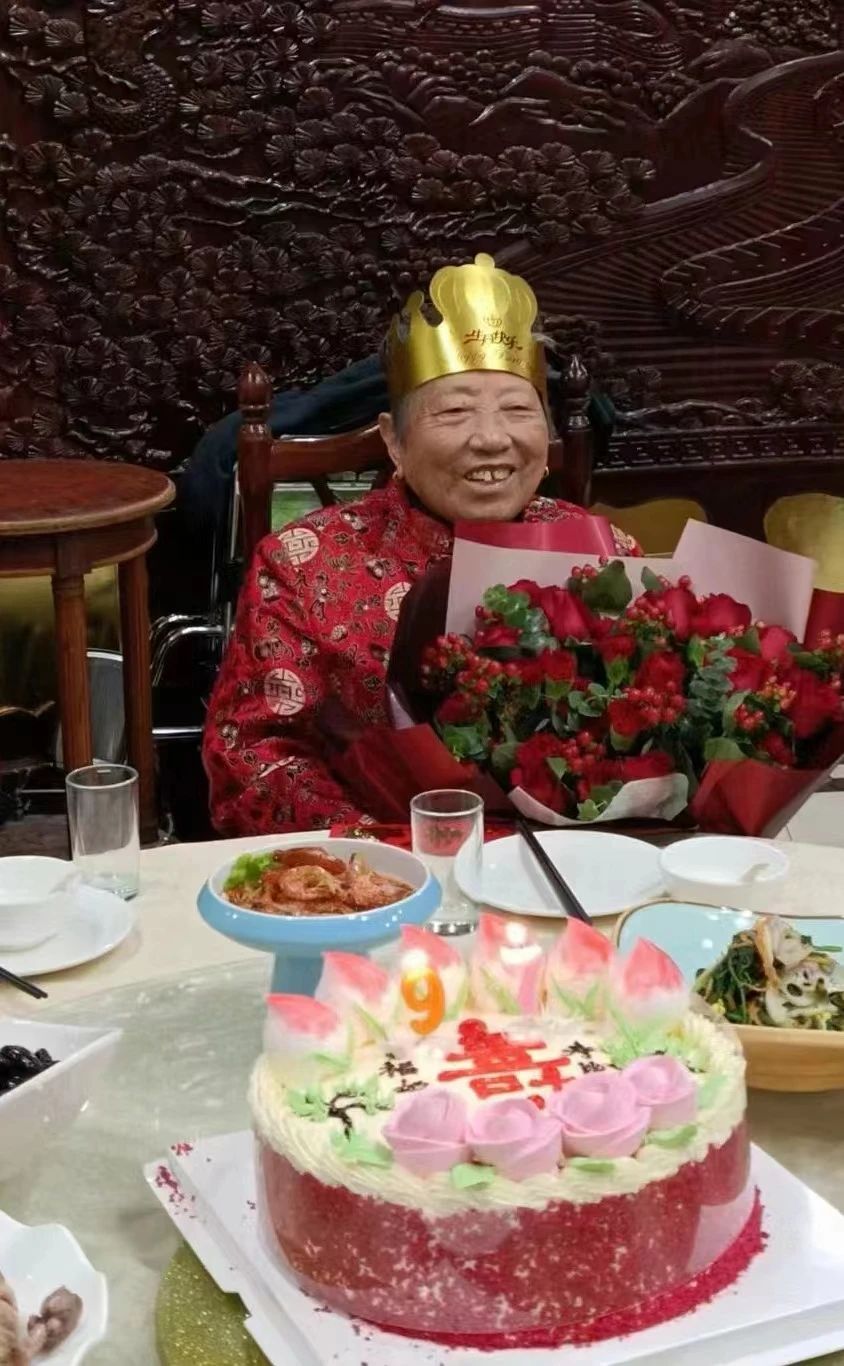
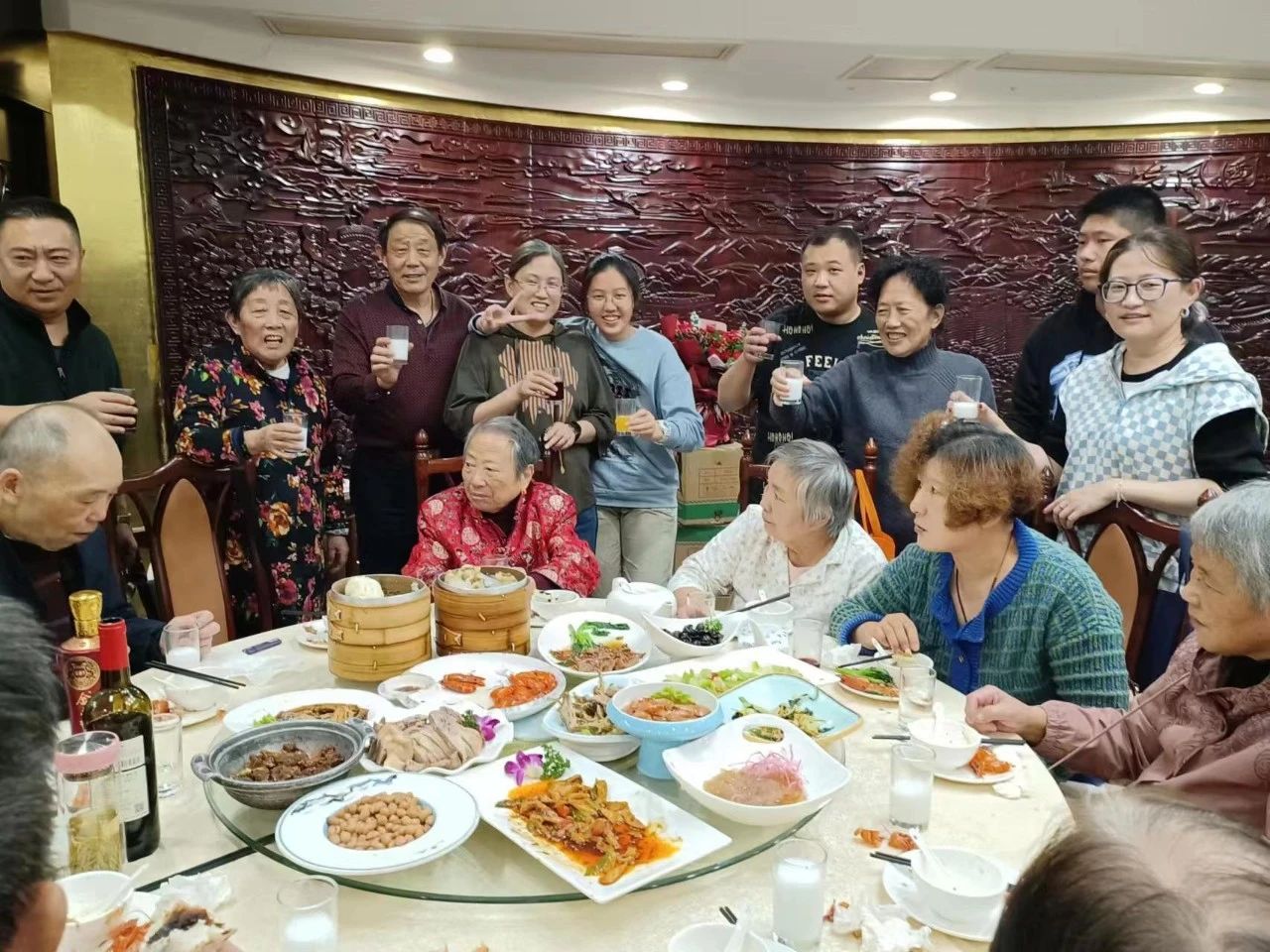
Shi Xiuying celebrated her 96th birthday surrounded by her entire family
At the beginning of 2022, Shi had to undergo the amputation of her lower left leg due to complications from diabetes. The Memorial Hall and the Nanjing Aid Association for the Victims of Atrocities by Japanese Invaders arranged for dedicated persons to accompany her to medical appointments.
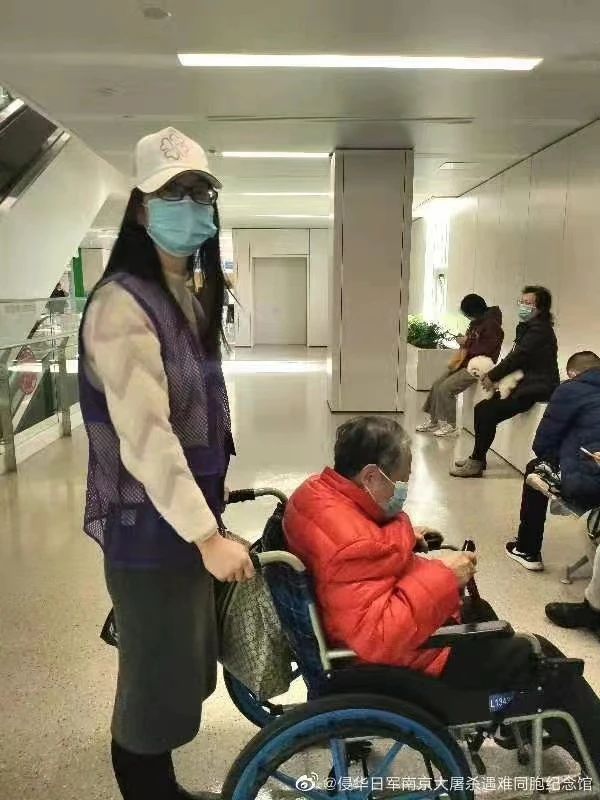
On May 30, 2022, Zhou Feng, deputy director of the Publicity Department of the CPC Nanjing Municipal Committee anddirector of the Memorial Hall, visited Shi to extend blessings ahead of the Dragon Boat Festival, celebrated on the fifth day of the fifth month of the Chinese lunar calendar.At that time, Shi was experiencing a favorable recovery thanks to the diligent care of her daughters and other family members. Though reliant on a wheelchair for mobility, she insisted on brushing her teeth and washing her face by herself, determined to handle any tasks within her capacity independently.
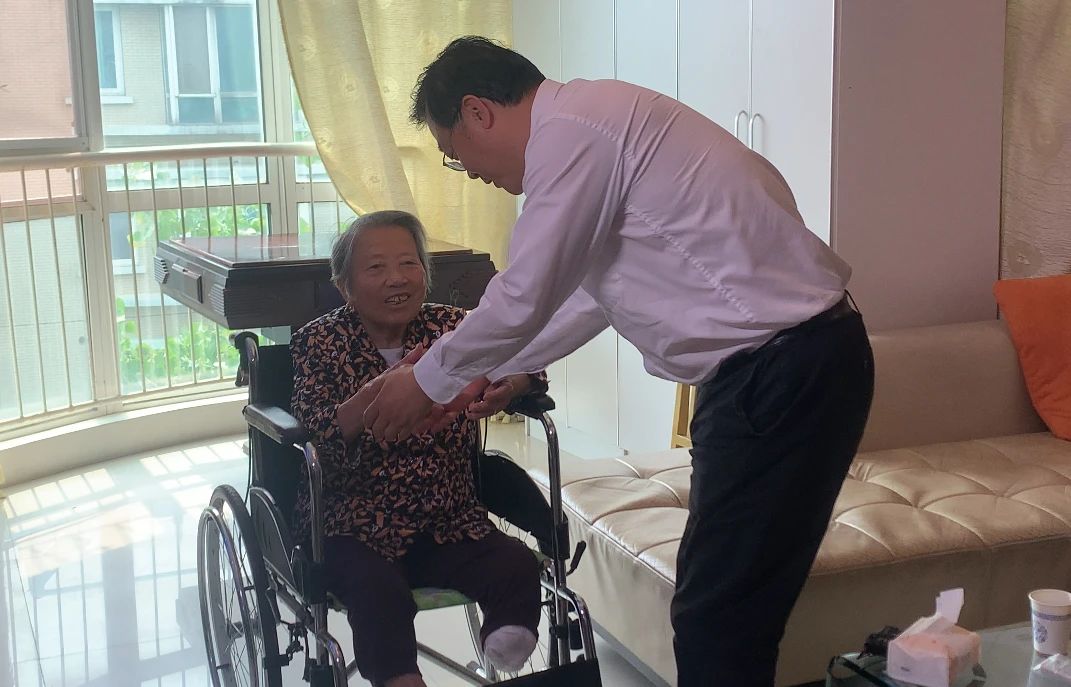
Educated the young generation about the importance of remembering history and always following the CPC leadership
Unfortunately, Shi’s eldest daughter passed away a few years before her own passing. After her limb amputation, Shi received devoted care from her second daughter, Wang Xiuhong, and her youngest daughter, Wang Xiuyun, who alternated in their responsibilities to ensure she was almost never left alone.
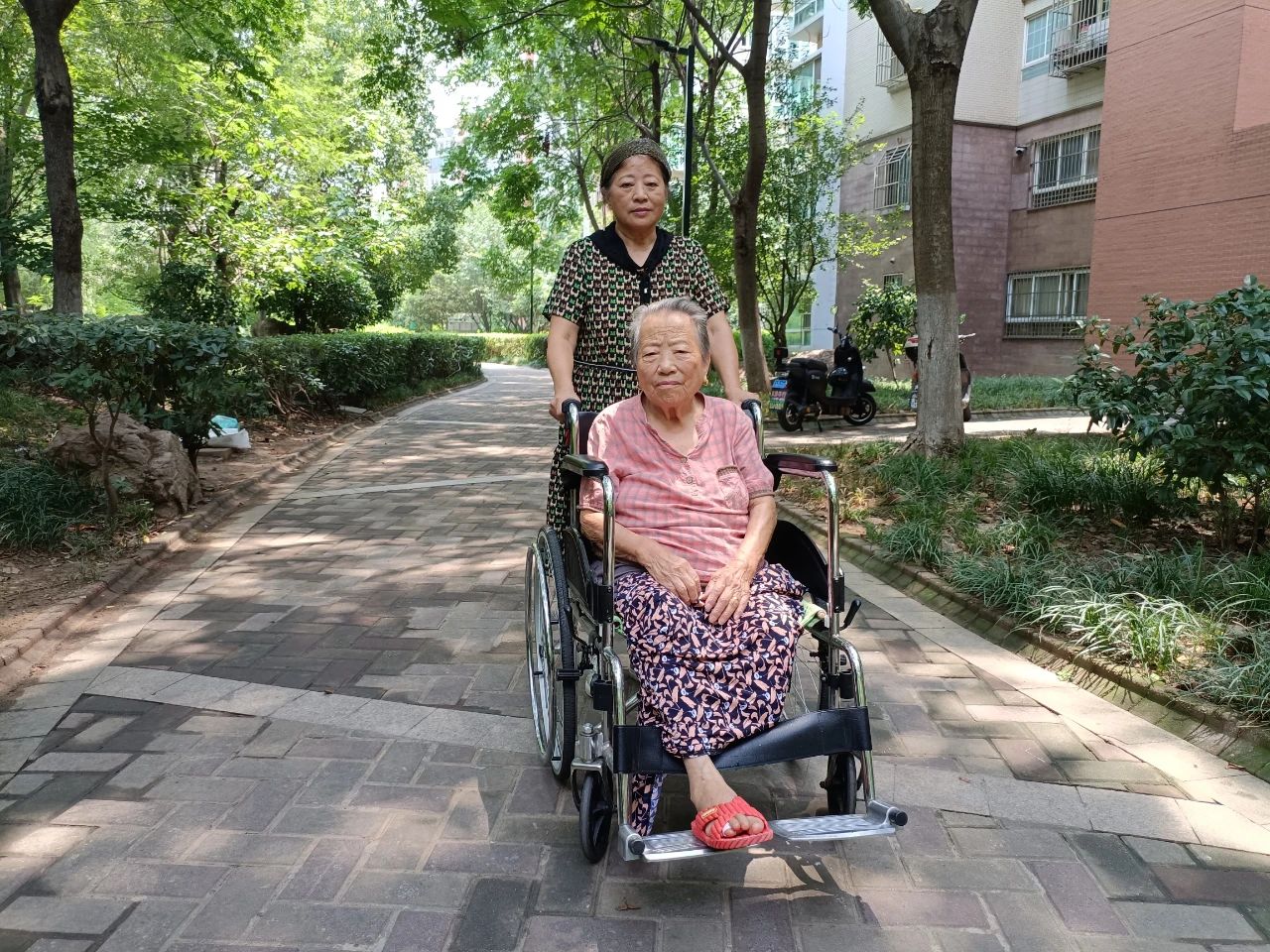
Staff members from her community visited Shi regularly, often providing material assistance. During the 2023 Spring Festival, or Chinese Lunar New Year, Shi conveyed her warm blessings to the staff of the Memorial Hall.
In advance of that year’s Chongyang Festival, an annual celebration to honor the elderly, Memorial Hall staff members and healthcare workers from the survivor healthcare service team of Jiangsu Maternal and Child Health Care Hospital visited Shi. They measured her blood pressure and sugar levels, and then offered Shi a Chinese Tang suit as a gift.
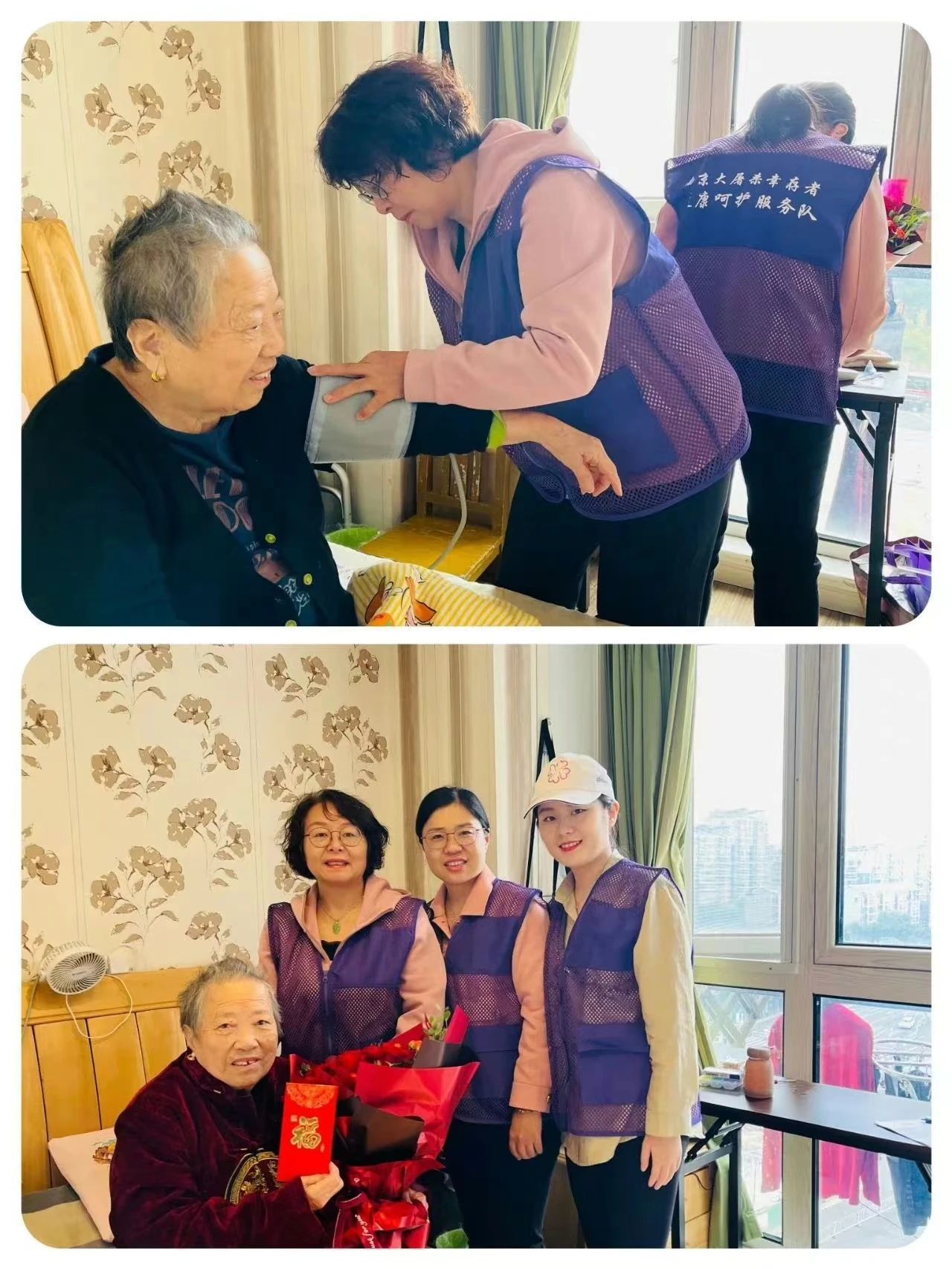
On weekends, Shi’s grandchildren would bring their own children to visit her. Shi always told them how the CPC has enabled the Chinese people to live a life of happiness, free from oppression, poverty, and hunger. Throughout her life, she wished for the younger generation to remember the hardships endured by their ancestors and to steadfastly follow the Party’s leadership, contributing to the development of Nanjing and the nation’s prosperity. Wang Xiuyun shared with the Memorial Hall staff that in the early hours of July 12, around 4 a.m., Shi suddenly fell ill. The family urgently called for emergency services, but by the time the ambulance arrived and transported her to the hospital, it was too late.
As I wrote this, memories of being with Grandma Shi played out like a movie in my mind. Her words still echo in my heart: “I hope for peace and safety in the future; I do not wish to see any more wars.”

